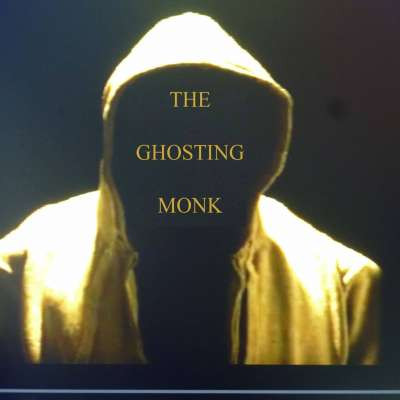Marxist History Is Charlatanism (Olavo de Carvalho)
Marxist History Is Charlatanism (Olavo de Carvalho)
With honorable and inevitable exceptions, the historiography available in the national book market is predominantly Marxist or pro-Marxist in orientation. For this reason, our view of History is stereotyped and false to the point of being indistinguishable from fiction and propaganda. The History that Brazilians learn in schools and books is a History for political operatives.
No one can be Marxist without reading everything with paranoid suspicion, searching for hidden political motives, and yet refraining, as a principle, from doing the same with what they write. With utmost ease, a Marxist will scour the "discourse of power" between the lines of the most apolitical and purely scientific authors, while refusing to examine the presence of the same element in those who, like him, are openly engaged in the struggle for power.
For the Marxist, History is, by definition, not a descriptive or explanatory science, but a weapon in the fight for a very specific goal. "It is not a question of interpreting the world, but of transforming it." The past thus has no inherent right to existence, except as a pretext for the future that is envisioned. Hence, to distort it is, for the Marxist historian, a right and even a duty.
Marxism, in short, is systematized unconsciousness.
And note that I am speaking of the somewhat more "respectable" intellectual Marxism. Certainly, this is not the type of Marxism predominantly practiced in Brazil or elsewhere: it is an “agitprop” Marxism, which seeks scandal through anti-capitalist denunciations more than historical knowledge, even in the broadest, metaphorical sense of the term.
One example is the contemptible American Genocide: The Paraguayan War by Júlio J. Chiavenato, which consecrated for twenty years the communist myth of a genocidal struggle serving the Rothschild bank, until being completely dismantled by Francisco Fernando Monteoliva Doratioto in the recently published Damned War: A New History of the Paraguayan War.
Even in pure reference works, Marxist charlatanism introduces the most outrageous falsifications. I have already denounced here a grotesque Critical Dictionary of Right-Wing Thought, authored by 114 academic luminaries, which systematically excluded all the most famous right-wing thinkers—from T. S. Eliot to Von Mises, from Böhm-Bawerk to Irving Kristol and Russell Kirk—replacing them with crude Nazi pamphleteers such as Goebbels and Streicher, to give the impression that right-wing thinkers do not think, and when they do, it is to premeditate heinous crimes.
But the most scandalous case, due to its volume and ambition, is The Black Book of Capitalism, hurriedly prepared by a team of pro-communist historians to neutralize the embarrassment caused by The Black Book of Communism. In the latter, a group of repentant Marxists, led by Stéphane Courtois, tallied and confessed that, with a minimum total of one hundred million victims, communism had been the greatest scourge of all time, surpassing the combined effects of all wars, epidemics, and earthquakes of the most violent century in History.
Left-wing forces quickly assembled an emergency team, with Gilles Perrault in command, to turn the loss into a gain. Their mission: to manufacture one hundred million victims of capitalism, so as to establish, in the impossibility of redeeming the communist image, at least a semblance of moral equivalence between the two regimes.
It is true that capitalist countries engaged in wars and killed people. But one thing is to kill enemies in war, another is for a state to decimate its own civilian population. The total of one hundred million victims pointed out by Stéphane Courtois excluded, by principle, soldiers killed in battle, focusing on genocide practiced by communists against unarmed populations, almost always in their own countries. Nothing similar could be found in capitalist nations except by resorting to calling the National Socialist regime or the feudalism of Imperial China "capitalist." Perrault and his advisors did not hesitate to do this, but even then the numbers fell far short of what they desired. It was necessary, therefore, to falsify more deeply, including in the sum of “victims of capitalism” the combatants killed in battles. But even then capitalism came out looking good. The United States, for example, in all military interventions it undertook over a century, killed no more than two million enemies, a modest quota for a country that sought to brand itself as the most aggressive imperialist power of all time.
Perrault and his crew ultimately saved themselves from trouble through the cynical decision to attribute to capitalism the blame for all the deaths that occurred in World War II (a total of 50 million, including those carried out by Nazi and Soviet troops), in the Russian civil war (6 million, including half liquidated by the revolutionary government), in the Vietnam War (2 million, including victims of the Viet Cong), in the Algerian War (1.2 million, including those killed by communist rebels), in the Spanish civil war (700 thousand dead on both sides), and — holy mercy! — in the Rwandan massacre (500 thousand dead, all sacrificed due to the egalitarian incitement of “poor” Hutus against the “rich” Tutsis).
And so on.
Result: by charging the communist crimes to capitalism’s account, capitalism was revealed as indeed a regime as violent and wicked as communism, thus establishing the moral equivalence, quod erat demonstrandum.
Is calling this trickery, cheap deceit, false propaganda just a “political opinion,” as debatable and morally relative as its opposite? Or is it a matter of elementary morality? But if the reader thinks that some of the protagonists of these feats feel at least a bit of shame for what they did, they are very mistaken. All have a clear conscience, believing they work for good and truth. If we throw the inequity of their deeds in their faces, they turn their backs with the princely hauteur of those who pay no attention to just anyone, much less to (vade retro!) anti-communists.
More than that, with the same brazen audacity with which they distort the whole, they lie in the details. Right behind Perrault’s success appeared Dr. Emir Sader, in the margins of a book by Alain Besançon, shamelessly falsifying the content of the work: if in the body of the text the author stated that Nazi crimes were much more publicized by the media than communist ones, the little homunculus in the margins, lying doubly—in facts and in source—reversed the information, alleging that everyone only wanted to talk about communism and never about Nazism...
Is it an exaggeration to say that false consciousness taken to this point is a form of sociopathy?
0


![40K - THE SIEGE OF VRAKS [2] DEATH KORPS BREAKTHROUGH Warhammer 40,000 Lore - History](https://cdn.mgtow.tv/upload/photos/2025/12/19y6yw1pvUaaQJcMJnJ5_10_4d14daa7b5f2e76e403cebc7c2194b87_image_thumb_high.jpg)
 NerokeFive
NerokeFive
 TheQuartering
TheQuartering
 Life_N_Times_of_Shane_T_Hanson
Life_N_Times_of_Shane_T_Hanson
 RT
RT
 Styxhexenhammer666
Styxhexenhammer666

 mrghoster
mrghoster
 Timcast IRL
Timcast IRL


 Blackpill_52
Blackpill_52




 Stefan Molyneux
Stefan Molyneux
 WMHarrison94
WMHarrison94


 The David Knight Show
The David Knight Show


Log in to comment